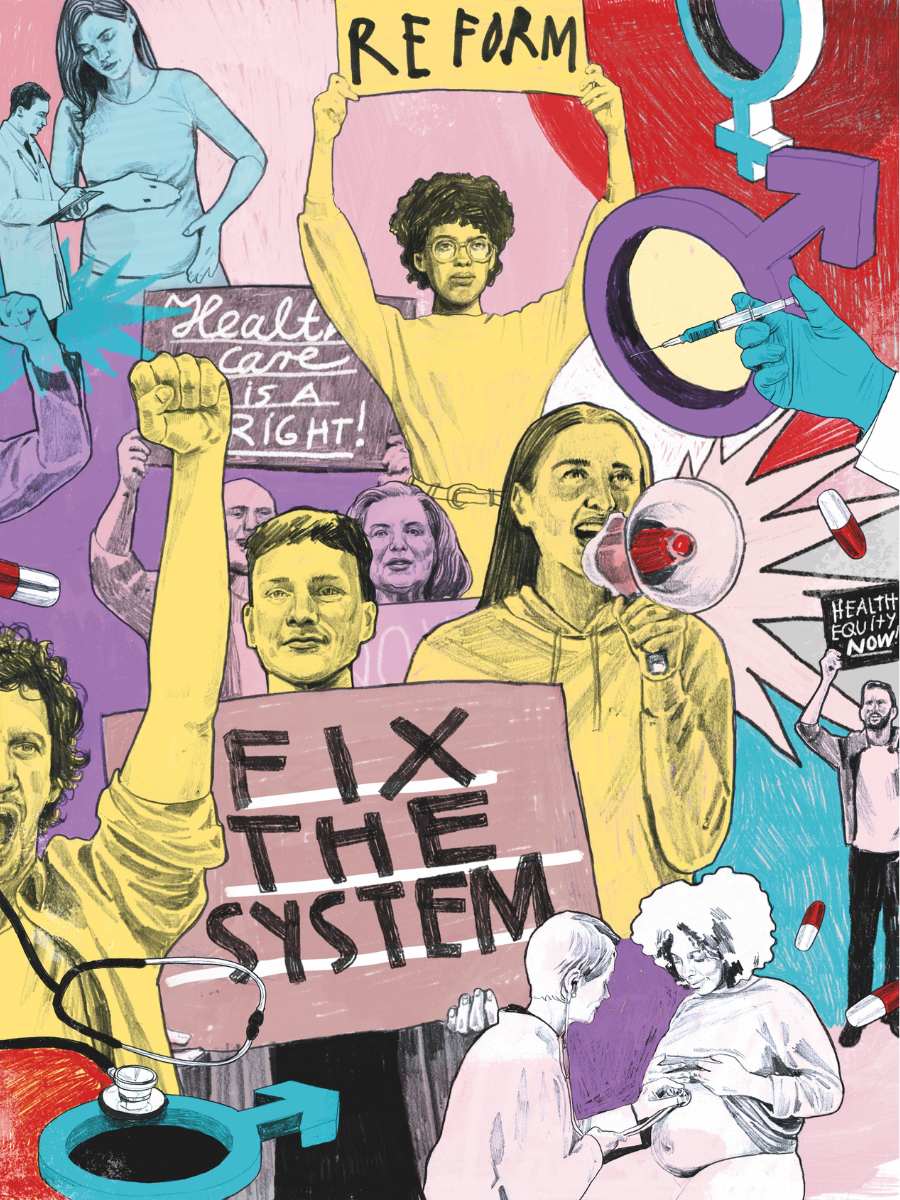Revealing Research Faculty and alumni scholarship confronts public health inequities. The impacts of the COVID-19 pandemic have been widespread across many areas of life, particularly in the pandemic’s exposure of public health failures and inequities. Several members of the BU Law community produced scholarship that shines light on these pressing public health issues in the areas of gender inequality, racial and socioeconomic disparities, and reproductive rights.
Gender Inequality
The Routledge Companion to Gender and COVID-19
Professors LINDA MCCLAIN AZIZA AHMED NAOMI M. MANN
“Gendered Complications of COVID-19: Towards a Feminist Recovery Plan”
Professor LINDA MCCLAIN and coauthor Naomi Cahn, a law professor at the University of Virginia, argued in a 2021 Georgetown Journal of Gender and the Law article that COVID-19 exposed and worsened preexisting gender inequities concerning work and family, including the gender pay gap, the childcare crisis, and the disproportionate role of women—particularly, women of color—in providing essential but undervalued care work. McClain and Cahn argued that the pandemic presented an opportunity to adopt laws and policies to reduce these intersectional inequalities.
Racial and Socioeconomic Disparities
“Reformed But Not Repaired”
NIA JOHNSON (’19) published a paper in the Michigan Journal of Race & Law’s 2025 issue on inadequacies in healthcare reform, arguing that structural racism revealed several gaps in the Affordable Care Act that were exacerbated by the pandemic. These shortcomings disproportionately affected racial minorities, leading to divergent outcomes in COVID-19 complications and mortality.
“Disparities in Health Care: The Pandemic’s Lessons for Health Lawyers”
Professor DANIELLE PELFREY DURYEA , former BU Law clinical instructor; Chair of the Health Law Program and Co-Director of the BU Program on Reproductive Justice Professor NICOLE HUBERFELD Health Law Watch (2021) that discusses discrimination and inequity in healthcare, informs legal practitioners of key trends, and offers guidance on navigating current regulations.
Reproductive Rights
Floating Lung Test Research Study Group
Since 2023, Professor AZIZA AHMED and Northeastern University School of Law Professor Daniel Medwed have been leading a team of lawyers and forensic scientists in research around the legal and scientific legitimacy of the “lung float” test, which has been used as evidence to bring murder charges against mothers who experience stillbirths.
“Will EMTALA Be There for People with Pregnancy-Related Emergencies?”
Since the 1970s, SARA ROSENBAUM’S (’76) advocacy has been critical to the improvement of American healthcare policy, including the passage of the Emergency Medical Treatment & Labor Act (EMTALA). In 2022, she published an article in the New England Journal of Medicine questioning whether EMTALA will still be available for pregnancy-related emergencies, predicting tension with restrictive state abortion laws.
